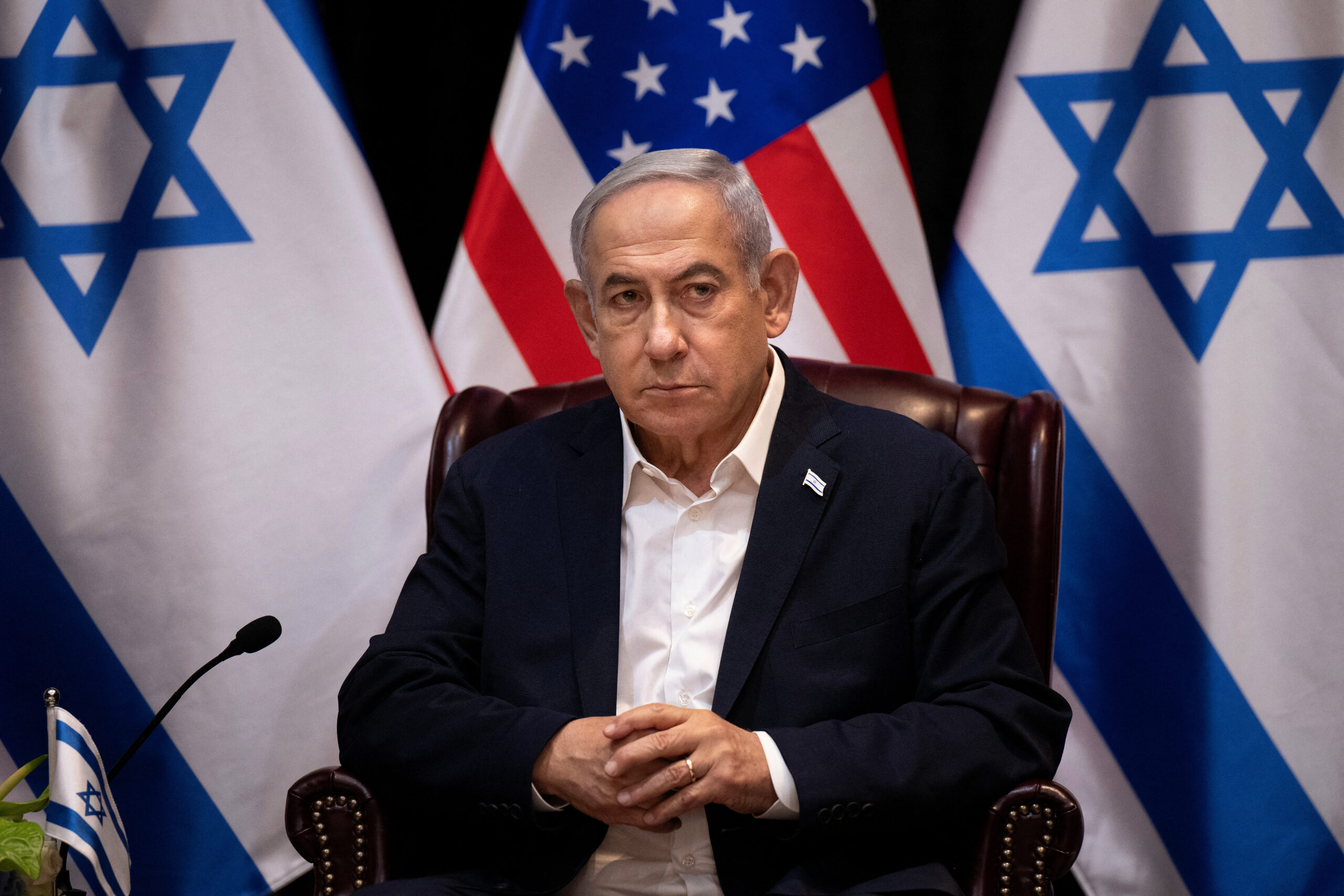Netanyahu says ‘disappointed’ Biden won’t support ICC sanctions

Israel’s Prime Minister Benjamin Netanyahu waits for the start of the Israeli war cabinet meeting also attended by the US President, in Tel Aviv on October 18, 2023, amid the ongoing battles between Israel and the Palestinian group Hamas. FILE PHOTO/Agence France-Presse
WASHINGTON — Benjamin Netanyahu said in an interview broadcast Sunday he is “disappointed” US President Joe Biden won’t pursue sanctions against the International Criminal Court, as its prosecutor seeks arrest warrants for the Israeli prime minister.
Both Republicans and Democrats in the US Congress have pushed to impose sanctions on the court, though the White House has said it would block their legislation.
“The United States said that they would, in fact, in a bipartisan way, back the sanctions bill,” Netanyahu said in an interview on Sirius XM radio, which was recorded on Wednesday — before the latest Gaza truce plan emerged.
READ: Biden says Israel’s Gaza offensive ‘not genocide’
“I thought that was still the American position because there was a bipartisan consensus just a few days ago,” he said.
“Now, you say there’s a question mark. And frankly, I’m surprised and disappointed.”
ICC prosecutor Karim Khan said last month that he was seeking warrants for Netanyahu and Israeli Defense Minister Yoav Gallant, as well as top Hamas leaders Yahya Sinwar, Ismail Haniyeh and Mohamed Deif, on suspicions of war crimes and crimes against humanity in the ongoing Israel-Hamas war.
Washington is not a member of the International Criminal Court, and has traditionally rejected its jurisdiction to issue warrants for US citizens, but has worked with the court on some issues as an observer.
READ: US says not changing Israeli policy despite Rafah strike
Facing Republicans pushing for sanctions against the ICC in response, US Secretary of State Antony Blinken previously told Congress that “we want to work with you on a bipartisan basis to find an appropriate response.”
While the White House has criticized the ICC, and Biden called the application for arrest warrants “outrageous,” US National Security Council spokesman John Kirby later told reporters that sanctions were not “the right approach.”
The Netanyahu interview was aired amid strained relations between Washington and its key Middle Eastern ally, though little has changed policywise in terms of US support.
It was also recorded before Biden outlined a Gaza ceasefire deal Friday which immediately sparked further fissures between the US president and Israeli prime minister.
Biden had said Israel was offering a new roadmap towards a permanent peace in the embattled Palestinian territory, with the president outlining a three-phase proposal that would start with a six-week complete ceasefire.
Shortly after Biden’s announcement, however, Netanyahu insisted his country would still pursue the war until it had reached all its goals.
The Israeli leader took issue with Biden’s presentation of what was on the table, insisting on Friday the transition from one stage to the next was “conditional” and crafted to allow Israel to maintain its war aims.
Netanyahu reiterated that position on Saturday, saying that “Israel’s conditions for ending the war have not changed: the destruction of Hamas’s military and governing capabilities, the freeing of all hostages and ensuring that Gaza no longer poses a threat to Israel.”